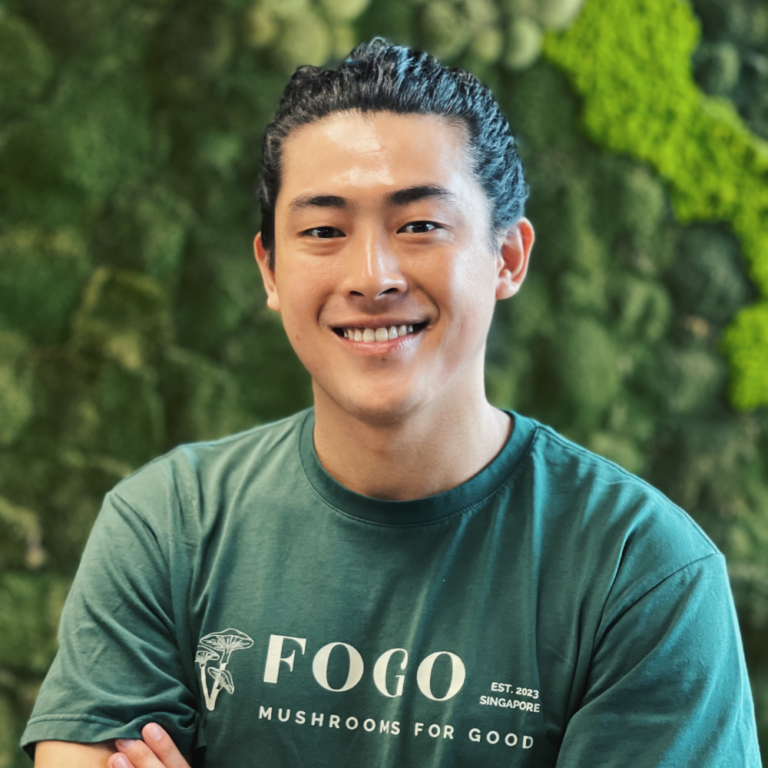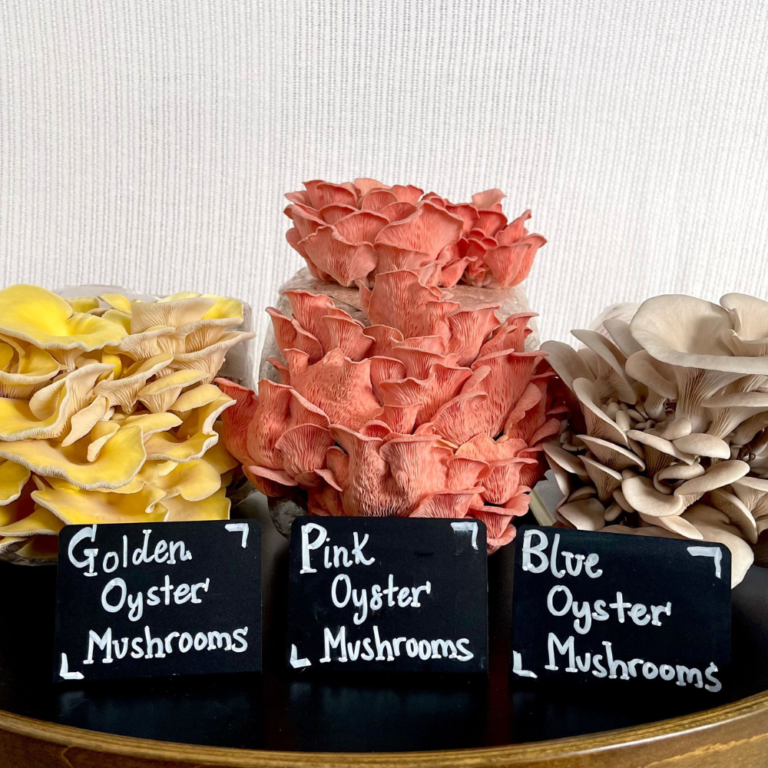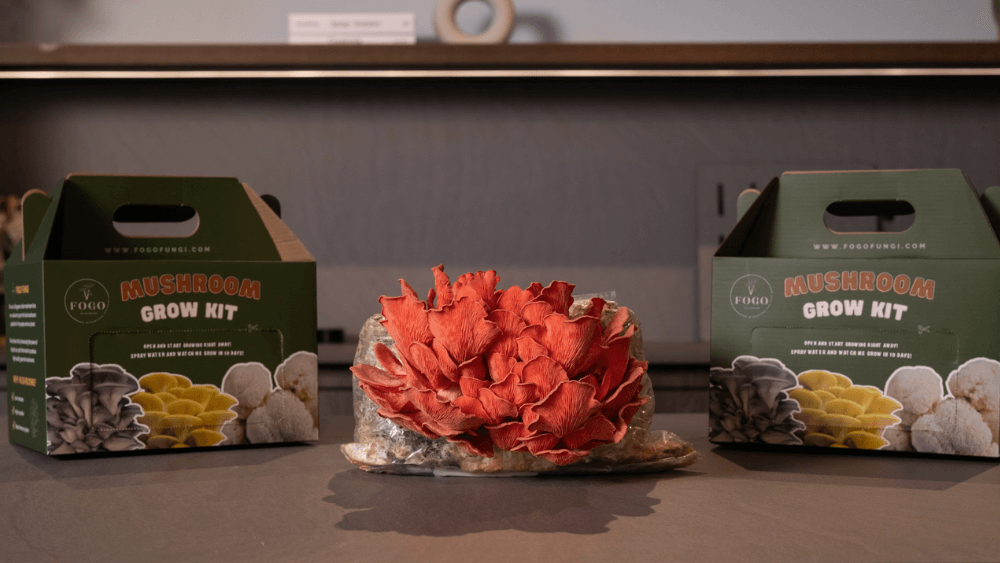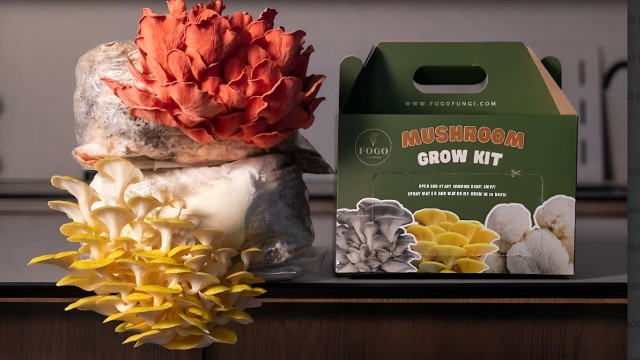From Waste to Plate: Building a Sustainable Food Business to Transform the Food System
To reduce food waste and create a circular economy, Fogo Fungi uses food waste to grow gourmet mushrooms. The sustainable food business was founded by Ryan Ong and Felix-Constantin Dorner, and incubated by SMU’s Institute of Innovation and Entrepreneurship (IIE). SMU IIE’s BIG incubation programme helped them refine their business model, and connect with mentors and investors. The business is now looking towards expanding their product lineup and establishing a network of urban farms.
In every manufacturing process, some waste by-products are inevitable. To conserve resources and reduce carbon footprint for a sustainable future, it has become increasingly pertinent to find effective methods to reduce this waste.
Enters Fogo Fungi. Kickstarted under the SMU Institute of Innovation and Entrepreneurship’s (IIE’s) Business Innovations Generator (BIG) incubation programme, Fogo Fungi aims to solve two existing issues in sustainability – food production and food waste.
The start-up has upcycled food waste like spent beer grains, coffee waste, and soy bean waste to cultivate gourmet mushrooms. For every 1kg of waste material used, Fogo Fungi is able to grow at least 1kg of fresh mushrooms, helping to close the loop of the food system and contribute to a circular economy.
Navigating entrepreneurial waypoints head-on with BIG

For Fogo Fungi founder Ryan Ong, SMU’s BIG Incubation Programme proved instrumental in the company’s development. The programme’s extensive workshops helped the start-up pass through key checkpoints and milestones, setting Ryan and his co-founder, Felix-Constantin Dorner, on the path to success.
“For instance, pitching sessions provide a golden opportunity for start-ups to persuade important stakeholders of your vision. [During the BIG Incubation Programme], we were given the opportunity to pitch our businesses to investors in a closed-door setting,” Ryan says, reflecting on his experience in the four-month programme.
“Additionally, the lessons extended beyond the workshops, coming in the form of a collaborative ecosystem filled with supportive start-up peers, mentors, and experts. Exchanging challenges and solutions with fellow founders helped us make more informed decisions to navigate through the space. Our BIG incubation manager has helped to facilitate many of these connections and networks.”
The BIG programme also guided Ryan, an SMU Lee Kong Chian School of Business alumnus, and his co-founders through important considerations such as customer validation, product-market fit, and go-to-market strategies. These lessons, together with the duo’s shared vision and ingenuity, have accelerated Fogo Fungi’s growth, seeing it sprout from the confines of Ryan’s three-bedroom house and his friend’s spare bedroom to a 4,000 sq ft pilot facility in Tuas.
A business model rooted in sustainability

Globally, about 1.3 billion tonnes of food are wasted annually. In Singapore, food waste accounted for about 11 per cent of the total waste generated in 2022. With its focus on reducing food waste, sustainability is at the core of Fogo Fungi’s business model.
“We believe that the world needs to waste less and produce more,” Ryan asserts.
Fogo Fungi’s mushrooms are grown on M Log, artificial logs of clean organic waste that mimic the logs that mushrooms grow on in nature. These are made using a proprietary recipe that is specially formulated to cultivate a wider variety of mushrooms, increasing both growth and yield, while maintaining sustainability and bio-efficiency.
“We hope to contribute through our technology that harnesses the power of fungi to upcycle waste to produce high-quality gourmet mushrooms. In our expansion plans, we are looking to integrate more sustainable practices like compostable packaging into our product to complement our energy-efficient technology.”
Growing a network of mushroom farms
So what’s next for the business? For now, Fogo Fungi is looking to expand their product lineup and introducing at least five more mushroom varieties to meet the demand of chefs and consumers.
The team is also exploring the launch of mushroom display chambers that can be easily set up by restaurants through their modular technology, offering an accessible and convenient farm-to-table experience. These versatile mushroom chambers can also be installed in other settings, including offices, restaurants and supermarkets. The team aims to establish a network of urban farms to raise awareness and promote involvement in sustainability, which they consider to be a collective endeavour.

“As part of our efforts to inspire the next generation of changemakers, we are planning to launch our own educational line, delivering informative and engaging teachings about mushrooms, sustainability, and the environment,” Ryan says, ruminating on the future aspirations that he and his co-founder share.
“Additionally, to enhance our customers’ experience with our educational and engaging mushroom grow kits, we have recently revamped and are gearing to launch version 2.0, so do keep an eye out for that!”
“Don’t be afraid to reach out for help. One person can’t possibly know everything, and there are many others from various communities who are willing to extend a helping hand. It was through the relationships built, advice received, and opportunities presented from the communities that we were able to progress as a start-up.”
Discover the transformative power of SMU IIE’s flagship incubation programme, Business Innovations Generator (BIG), and unleash your entrepreneurial potential. Learn more here.




